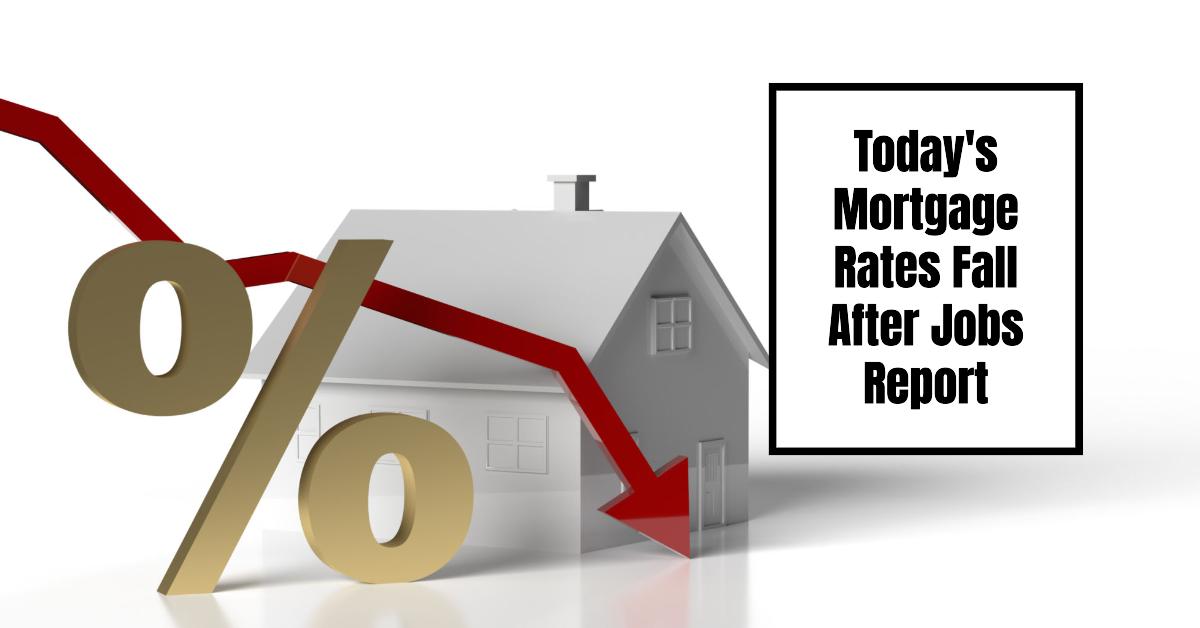I
n a significant shift for the housing market, mortgage rates have dropped after the jobs report, reflecting a pivotal change in the borrowing landscape. For the second consecutive week, mortgage rates have decreased, reaching their lowest levels since October.
The average rate for a 30-year fixed mortgage has fallen to 6.69%, down from 6.81% last week and significantly lower than the 7.03% recorded one year ago. This decline signals a responsive market reacting to economic data, potentially benefiting millions of homebuyers navigating an increasingly complex housing environment.
Key takeaways include:
- Mortgage rates decreased to 6.69% for a 30-year fixed mortgage, marking the lowest levels since October.
- Purchase applications have risen, suggesting improved demand due to lower rates amid a persistent affordability crisis.
- The Federal Reserve's monetary policy plays a critical role in shaping future mortgage rates.
Recent reports indicate a continued decline in mortgage rates, providing a potential respite for homebuyers. According to Freddie Mac's Primary Mortgage Market Survey, the average rate for a 30-year fixed mortgage fell to 6.69%, the lowest level observed in over a month. This decline follows a prolonged period of rates held above the 7% mark, which has significantly impacted borrower sentiment and housing market activity.
The data also indicates other positive trends, including a drop in the average rate on a 15-year fixed mortgage from 6.10% to 5.96%. Such reductions can make a substantial difference in monthly payments, resulting in significant savings for homeowners or potential buyers.
In the context of the broader housing crisis, these lower rates could motivate potential buyers who have been on the sidelines, awaiting more favorable borrowing conditions. Despite these improvements, the real estate landscape remains riddled with challenges, particularly concerning affordability in many markets.
The recent jobs report, which indicated that employers added a substantial 227,000 jobs in November, provides vital insight into the economy's health. The growth figures are impressive but come with mixed implications for mortgage rates. A strong job market typically raises inflation concerns, where increased consumer spending might prompt the Federal Reserve to consider interest rate hikes to manage economic growth.
As noted by Sam Khater, Freddie Mac's chief economist, "this week, mortgage rates decreased to their lowest level in over a month… the responsiveness of prospective homebuyers to even small changes in rates illustrates that affordability headwinds persist." Despite healthy job additions, many households still face challenges, as a significant portion of current mortgage holders (around 80%) enjoy rates below 5%.
Several elements contribute to the fluctuations seen in mortgage rates. A primary driver is the bond market, particularly the yield on U.S. Treasury bonds. When investors expect increased economic activity, they may sell off bonds, leading to rising yields and higher mortgage rates.
The interplay between job growth and the overall unemployment rate also plays a significant role. If the jobless rate decreases and wage growth occurs, it can boost consumer confidence, leading to increased spending on homes. However, a sudden spike in job creation can also lead to speculation about future inflation, which affects mortgage rates.
The recent drop in mortgage rates provides a beacon of hope for many homebuyers who have historically faced high borrowing costs. A 6.69% mortgage rate means that a $300,000 loan would result in approximately $1,934 per month in principal and interest payments compared to $1,967 per month with a previous 6.81% rate, allowing buyers to save about $33 monthly.
The interplay of rates and housing availability creates a unique environment for sellers as well. On one hand, homeowners who have secured lower rates might decide to stay put instead of selling, fearing they could miss out on favorable financing if they trade up. On the other hand, the hope of lower mortgage rates could entice homeowners to list their homes, potentially leading to increased market activity.
As we look ahead, the outlook for mortgage rates remains uncertain but intriguing. While the recent drop provides relief to buyers, ongoing fluctuations are expected as the economy reacts to both job growth and inflation concerns. Many analysts anticipate that the Federal Reserve may consider adjusting rates further based on economic conditions, which could lead to more changes in mortgage interest rates.
The Federal Reserve's upcoming meetings will be critical. Any signals indicating a change in monetary policy can influence market sentiment. If the Fed takes a more dovish stance, signaling a willingness to step back from aggressive rate increases, we could see continued dips in mortgage rates, encouraging higher demand for housing as well.
The housing market significantly reflects broader economic conditions. Responses from homebuyers suggest resilience, even amidst ongoing affordability challenges. Whether it is first-time buyers anxious to enter the market or existing homeowners looking to capitalize on favorable rates, the demand remains strong.
As observed, Sam Khater's insights into homebuyer responsiveness highlight the urgent need for accessible and affordable housing solutions. In many areas, especially where demand outstrips supply, the challenges remain. The current economic signals suggest that while lower rates provide an opportunity, systemic issues in the housing market won't be resolved swiftly.
The drop in today's mortgage rates marks a significant moment for both prospective homebuyers and the real estate market as a whole. As lower borrowing costs lure buyers, market dynamics will continue to shift, influenced heavily by ongoing economic indicators.
The resilience of the job market and its implications for inflation, alongside Federal Reserve policy, will play crucial roles in shaping future mortgage rates. Buyers should remain vigilant and up-to-date with both economic news and mortgage trends to make informed decisions in this ever-changing landscape.














